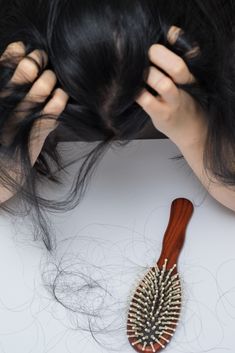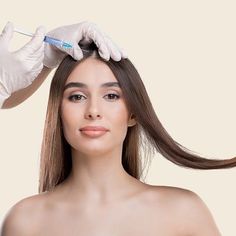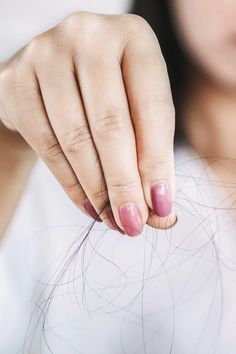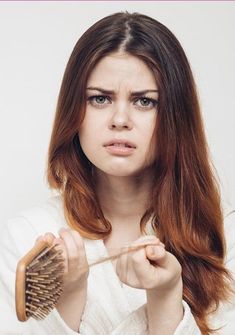Hair Loss and Treatment
Hair loss, medically termed alopecia, is a common concern affecting individuals of all ages and genders worldwide. It can have a significant impact on self-esteem, confidence, and quality of life. Understanding the causes, effects, and available solutions for hair loss is essential for effective management and prevention.

Causes of Hair Loss:
- Genetics (Androgenetic Alopecia): The most common cause of hair loss is hereditary factors, known as androgenetic alopecia. It is characterized by a gradual thinning of hair, typically starting at the temples or crown, and is more prevalent in men but can also affect women.
- Hormonal Changes: Hormonal imbalances due to pregnancy, childbirth, menopause, thyroid disorders, or polycystic ovary syndrome (PCOS) can lead to hair loss. Androgenic hormones such as testosterone and dihydrotestosterone (DHT) play a role in regulating hair growth and can contribute to hair loss when imbalanced.
- Medical Conditions: Certain medical conditions, such as alopecia areata (an autoimmune disorder causing patchy hair loss), scalp infections (such as ringworm), and chronic illnesses (like lupus or diabetes), can trigger hair loss.
- Medications: Certain medications and treatments, including chemotherapy, radiation therapy, anticoagulants, antidepressants, and hormone replacement therapy, may cause hair loss as a side effect.
- Stress and Emotional Factors: Emotional stress, trauma, or sudden life changes can disrupt the hair growth cycle, leading to temporary hair shedding known as telogen effluvium. Chronic stress may also exacerbate genetic hair loss.
- Nutritional Deficiencies: Inadequate intake of essential nutrients such as vitamins (particularly vitamin D, B vitamins, and biotin), minerals (such as iron and zinc), and protein can impair hair growth and contribute to hair loss.
- Environmental Factors: Exposure to environmental pollutants, toxins, UV radiation, and harsh chemicals in hair care products can damage the hair follicles and contribute to hair loss over time.

Effects of Hair Loss:
- Decreased Self-Esteem and Confidence: Hair loss can have a profound psychological impact, leading to decreased self-esteem, confidence, and body image dissatisfaction. Individuals may experience feelings of embarrassment, social withdrawal, and depression.
- Altered Appearance: Hair loss can significantly alter one’s appearance, making individuals look older than their actual age. It can also affect how individuals perceive themselves and how others perceive them, influencing interpersonal relationships and professional opportunities.
- Emotional Distress: Coping with hair loss can cause emotional distress, anxiety, and frustration, particularly when individuals feel helpless or unable to control their hair loss. Seeking support from friends, family, or mental health professionals can help alleviate emotional distress.
- Impact on Lifestyle: Hair loss may impact an individual’s lifestyle choices, including hairstyle preferences, clothing options, and participation in social activities. Some individuals may avoid swimming, exercising, or engaging in outdoor activities to conceal their hair loss.
- Physical Discomfort: In some cases, hair loss may cause physical discomfort, such as scalp itching, irritation, or sensitivity. Wearing wigs, hairpieces, or hats may provide temporary relief and concealment.
Solutions for Hair Loss:

- Medications:
- Minoxidil (Rogaine): Minoxidil is an FDA-approved topical medication available over-the-counter that promotes hair growth by stimulating hair follicles, prolonging the anagen (growth) phase of the hair cycle, and increasing blood flow to the scalp.
- Finasteride (Propecia): Finasteride is an oral medication approved for treating male pattern hair loss (androgenetic alopecia) in men. It works by blocking the conversion of testosterone to dihydrotestosterone (DHT), a hormone that contributes to hair loss.
- Topical Corticosteroids: Topical corticosteroids are sometimes prescribed to reduce inflammation and suppress the immune response in individuals with alopecia areata or other autoimmune-related hair loss conditions.
- Surgical Interventions:
- Hair Transplant Surgery: Hair transplant surgery involves transplanting hair follicles from a donor site (typically the back or sides of the scalp) to areas of baldness or thinning. It is an effective long-term solution for restoring natural-looking hair growth.
- Scalp Reduction Surgery: Scalp reduction surgery involves removing areas of bald scalp and stretching the adjacent hair-bearing scalp to cover the bald areas. It is suitable for individuals with extensive hair loss.
- Low-Level Laser Therapy (LLLT): LLLT, also known as laser hair therapy or red light therapy, uses low-level laser devices to stimulate hair follicles, increase blood flow to the scalp, and promote hair growth. It is a non-invasive treatment option for individuals with mild to moderate hair loss.
- Platelet-Rich Plasma (PRP) Therapy: PRP therapy involves extracting platelet-rich plasma from the patient’s blood and injecting it into the scalp to stimulate hair follicle growth and improve hair density. It is often combined with other hair loss treatments for enhanced efficacy.
- Nutritional Supplements: Certain nutritional supplements containing vitamins, minerals, and amino acids, such as biotin, iron, zinc, and protein, may support hair growth and improve hair health. However, it is essential to consult with a healthcare professional before starting any supplements.
- Hair Care Practices:
- Gentle Hair Care: Avoid harsh hair care practices, such as excessive heat styling, tight hairstyles, and overwashing, which can damage the hair shaft and exacerbate hair loss.
- Scalp Massage: Regular scalp massage with essential oils or scalp stimulators can improve blood circulation, nourish the hair follicles, and promote hair growth.
- Healthy Lifestyle Habits: Adopting a balanced diet rich in vitamins, minerals, antioxidants, and protein, staying hydrated, getting adequate sleep, managing stress levels, and avoiding smoking and excessive alcohol consumption can support overall hair health.
- Wigs and Hairpieces: Wigs, hairpieces, and hair extensions offer temporary solutions for individuals with significant hair loss or those undergoing medical treatments that cause hair loss. They provide coverage, volume, and styling versatility while waiting for natural hair regrowth or pursuing long-term treatment options.

Conclusion: Hair loss is a common and distressing condition that can have significant physical, emotional, and psychological consequences. However, with advances in medical technology, there are various effective solutions available to address hair loss and promote hair regrowth. By understanding the underlying causes of hair loss and exploring appropriate treatment options, individuals can regain confidence, improve their quality of life, and achieve their desired hair goals. It is essential to consult with a healthcare professional or hair loss specialist to develop a personalized treatment plan tailored to individual needs and preferences.

